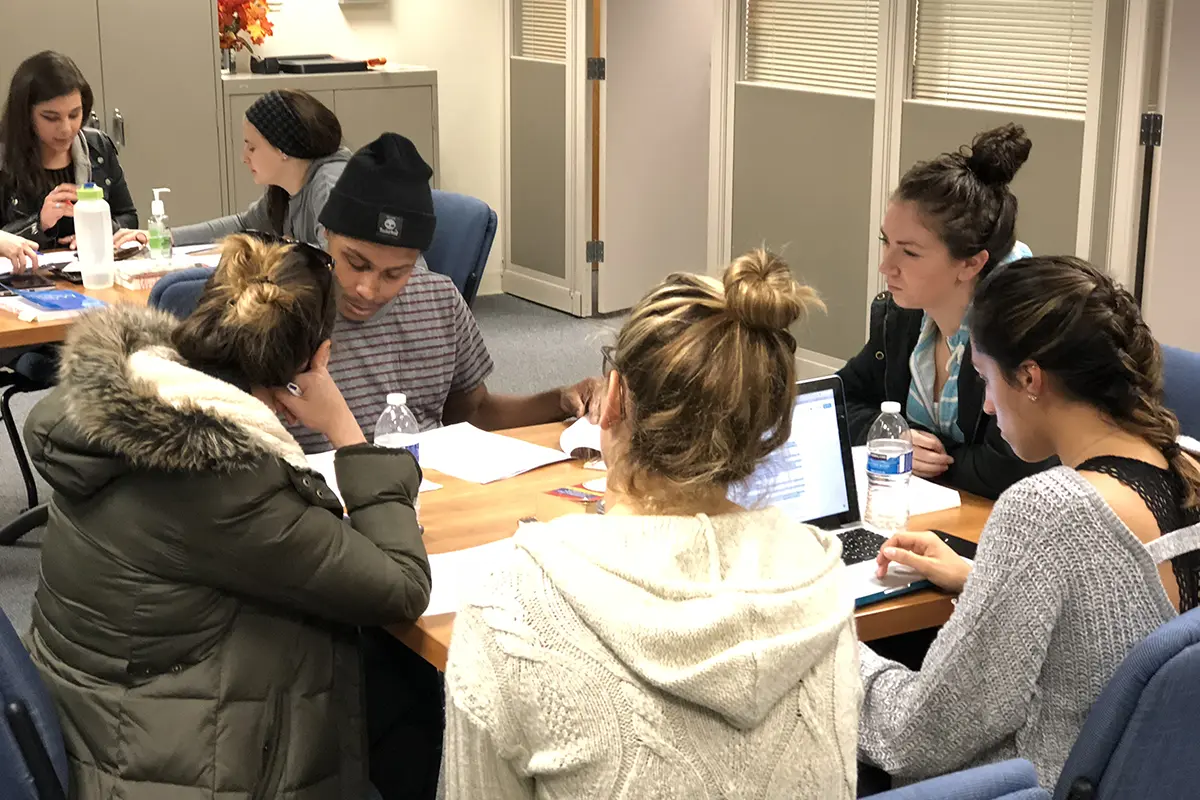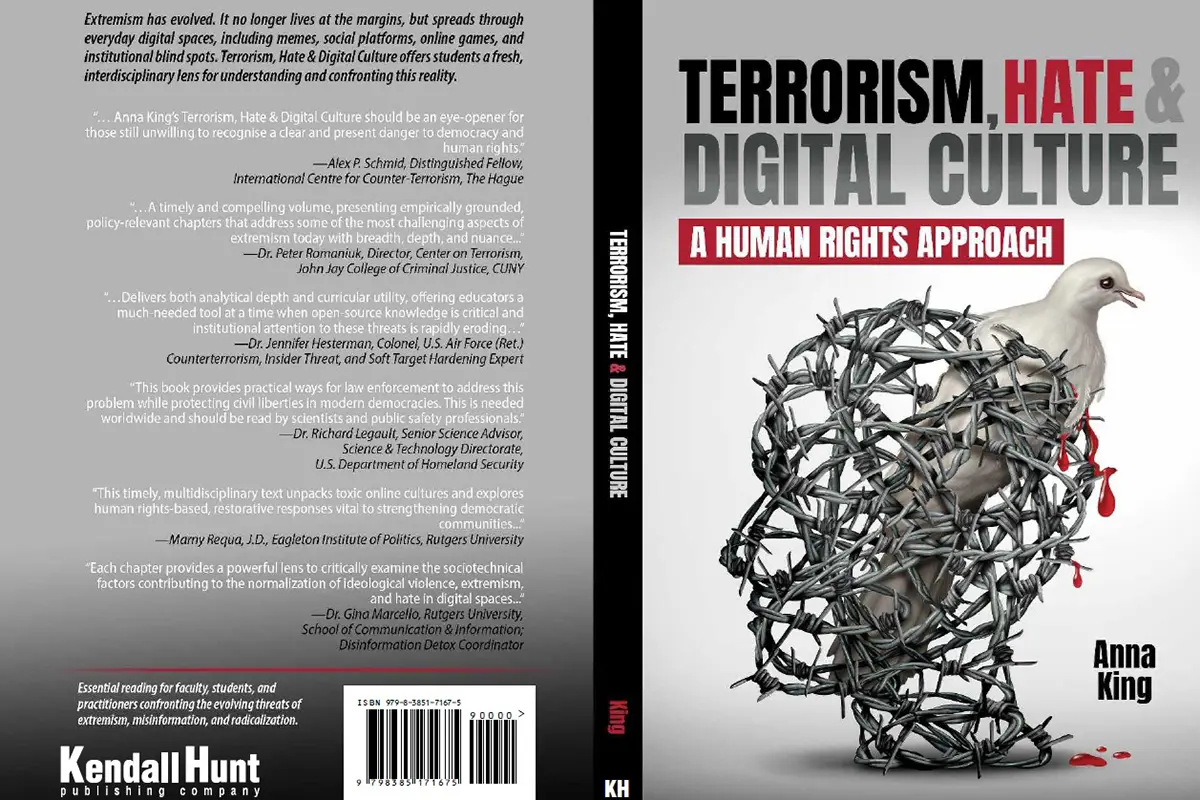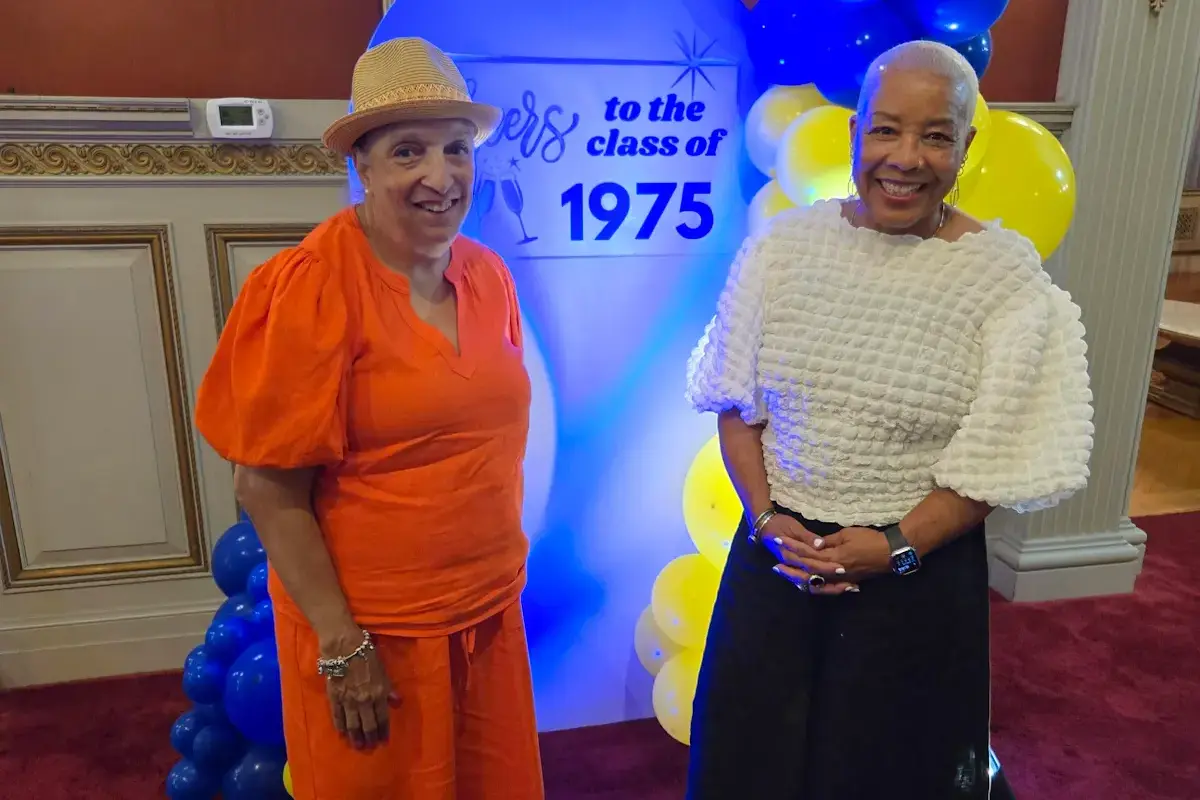Georgian Court University’s Writing Center recently celebrated its 10th anniversary, marking a decade since it opened on August 26, 2015. Located on the first floor of the Sister Mary Joseph Cunningham Library, Room 105, the Writing Center has served as a hub for all members of the Georgian Court community to strengthen their writing skills and grow academically, both in person and through virtual appointments. Drop-in assistance is also available during operating hours.
Dr. Anthony Brano founded the Writing Center and has served as its director since its opening. “It’s deeply meaningful to reach the 10-year mark. The Writing Center has become a place where students discover their voices as writers and gain the confidence to use those voices in class and in their careers,” he expressed.
Over the past decade, the Writing Center has supported and mentored more than 1,800 students across nearly 10,000 tutoring appointments. “Reaching this anniversary affirms that writing is central to a Georgian Court education and that we’re committed to a culture of thoughtful, skilled communication,” he added.
While undergraduate students visit most frequently, the Writing Center also routinely supports graduate students and faculty members. Undergraduates often bring course essays and projects, graduate students come for help with research papers, theses, and dissertations, and faculty members receive feedback on publications and grant proposals. “We also assist writers with style sheets such as APA, CMS, and MLA, grammar and mechanics, and formatting issues that can be frustrating to handle alone,” explained Dr. Brano.
The students who attend, as well as the tutors who assist them, are at the heart of what makes the Writing Center successful. “Over the past decade, the Writing Center has been a place where ideas take shape, where confidence is built, and where collaboration happens across disciplines,” stated Dr. Brano.
The peer and professional tutors who work at the Writing Center come from a wide range of academic programs, including, but not limited to, English, Education, Business Administration, Biology, Theology, and History. “That diversity shows students that strong writing matters in every discipline,” he described.
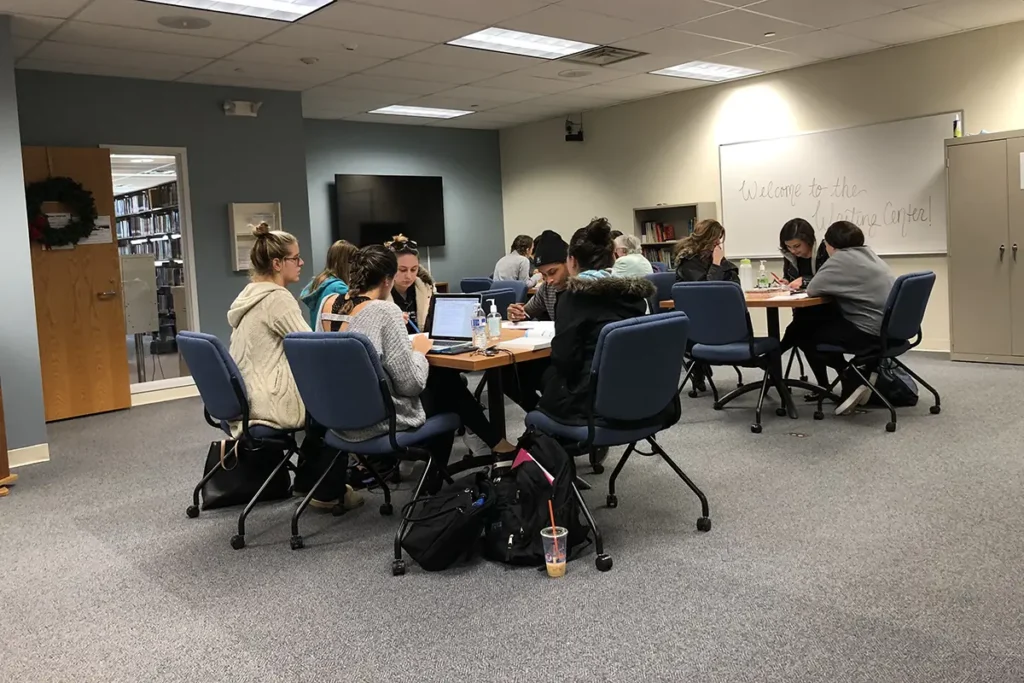
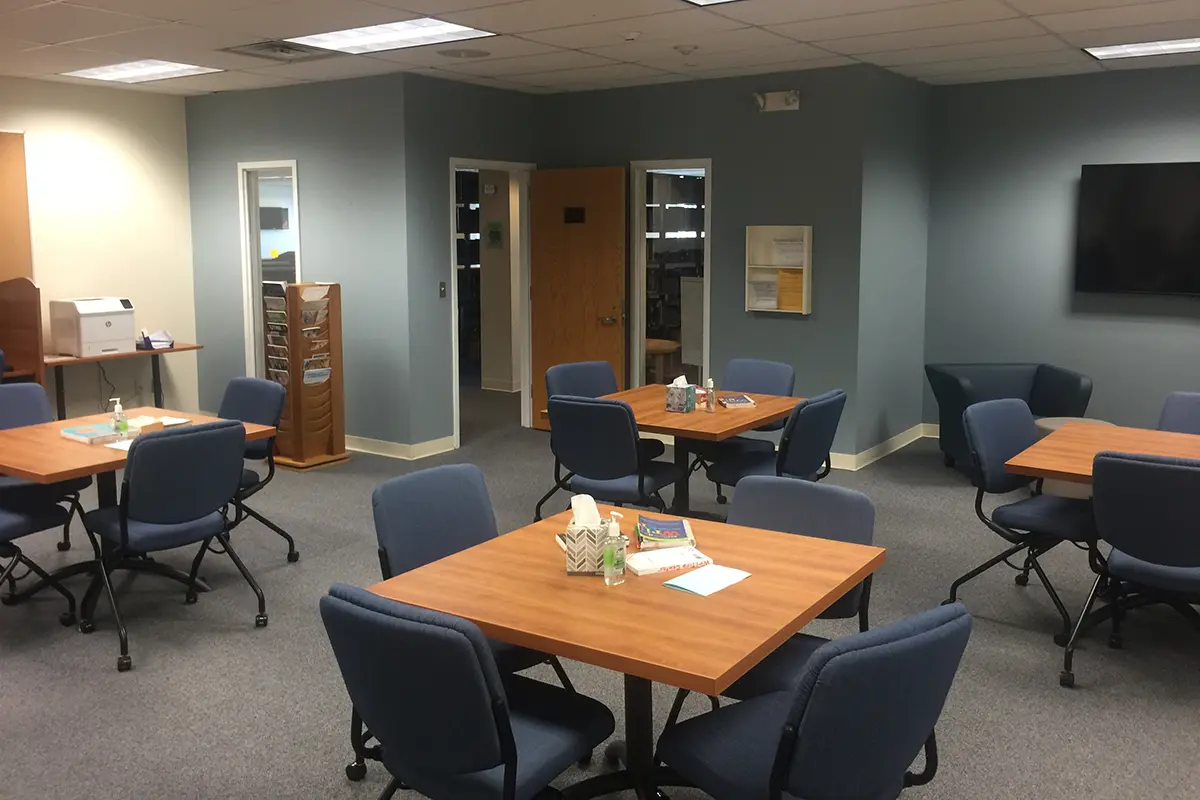
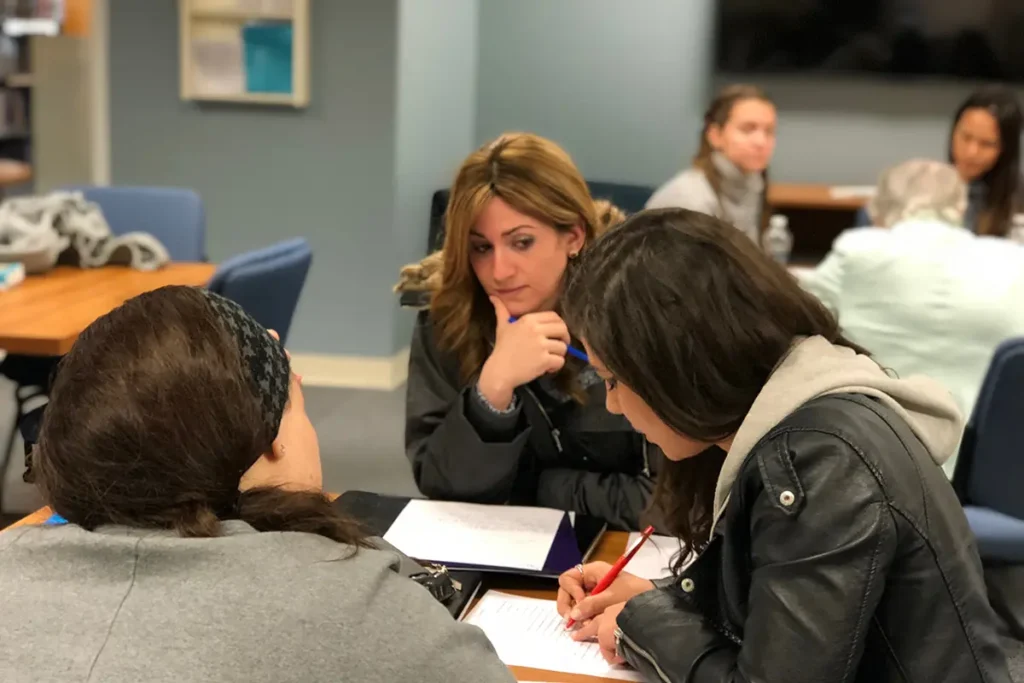
Tutor Testimonials
Caroline Zonis ‘21, a remote tutor from 2020 to 2021 who now works at the New York Public Library, said she found deep fulfillment in reading her peers’ essays and helping them convey their ideas more clearly and robustly.
“Every single student at GCU has a unique gift or skill that they have worked to develop and bring to their program,” she stated. “As a community, it’s crucial that we recognize that we don’t need to be experts in everything in order to be valuable and contributing individuals. We simply need to recognize that our skills, when combined with the skills and support of others, make everyone stronger and more connected.”
Priscilla Polizzi ‘27, an English and Religious Studies major, has been tutoring in the Writing Center for two years. Research is at the foundation of her schoolwork and studies. She enjoys reviewing and analyzing other people’s work and describes it as a puzzle to piece together what syntax and organization flow smoothly. She then designs the finishing touches of formatting and citing.
One of the main ways she helps those who come for tutoring is by identifying their own stylistic voices. “A big roadblock is trying to figure out what to write and in what order to write, so I find it easier to talk it out first; ‘it’ being the topic or argument,” she explained. “This helps to then decide what vocabulary and transitions work more naturally per writer.”
The Writing Center’s central library location also makes collaboration with reference librarians easy, providing additional research support just steps away.
Dr. Karen Veselits, a professional tutor since 2018 and former adjunct writing instructor, emphasized the value of that partnership.
“Writing Center tutors and reference librarians offer hands-on help to students who need support and instruction beyond the classroom,” she said. “When students come to the Writing Center wanting help with research, I always introduce them to a reference librarian just outside our door and sit with them as the librarian helps with beginning the research process for a particular assignment. Then I encourage students to schedule another appointment with me for help with the reading and writing part of the assignment.”
Former tutor Brandon Downey ‘22, ‘23, now a Freehold Regional High School teacher, said his tutoring experience shaped his teaching philosophy.
“Every day I learned something new, and as an educator, that is an essential skill because we never truly stop learning,” he described. “When I teach my students about self-advocacy, I often reference the Writing Center because it is the epitome of supporting oneself and seeking to improve. So, while it’s true that I no longer am able to sit in the GCU library to proofread essays and provide feedback to students, I still do it every single day. I would not be the teacher that I am today if not for the time I spent in the Writing Center.”
Dr. Caelin McCallum ‘16, once the center’s resident APA tutor and now Assistant Professor of Social Work, praised the center’s role in building confidence. “I found that some of my students would come in feeling extremely anxious about their writing, and over time, their skills would improve significantly so that it was more or less just about helping them believe in themselves.”
The Writing Center’s growth wouldn’t be possible without the support of the Georgian Court community over the years, especially from faculty and staff. Professors routinely send students for tutoring and encourage them to use this beneficial service.

In its beginning stages, the Writing Center benefitted from a Title III Department of Education grant administered by Dr. Susan Field, Professor of Psychology. The grant supported significant upgrades to the center’s furniture and technology, keeping the space in sound condition for the past decade. “It’s a reminder that the Writing Center has always been a community effort, strengthened by faculty and staff who believe in its mission,” noted Dr. Brano.
The Writing Center is prepared to evolve through the next decade. With the rise of artificial intelligence, the center remains committed to helping students and faculty use it responsibly, understand its limits, and preserve the creativity and critical thinking that make human writing powerful.
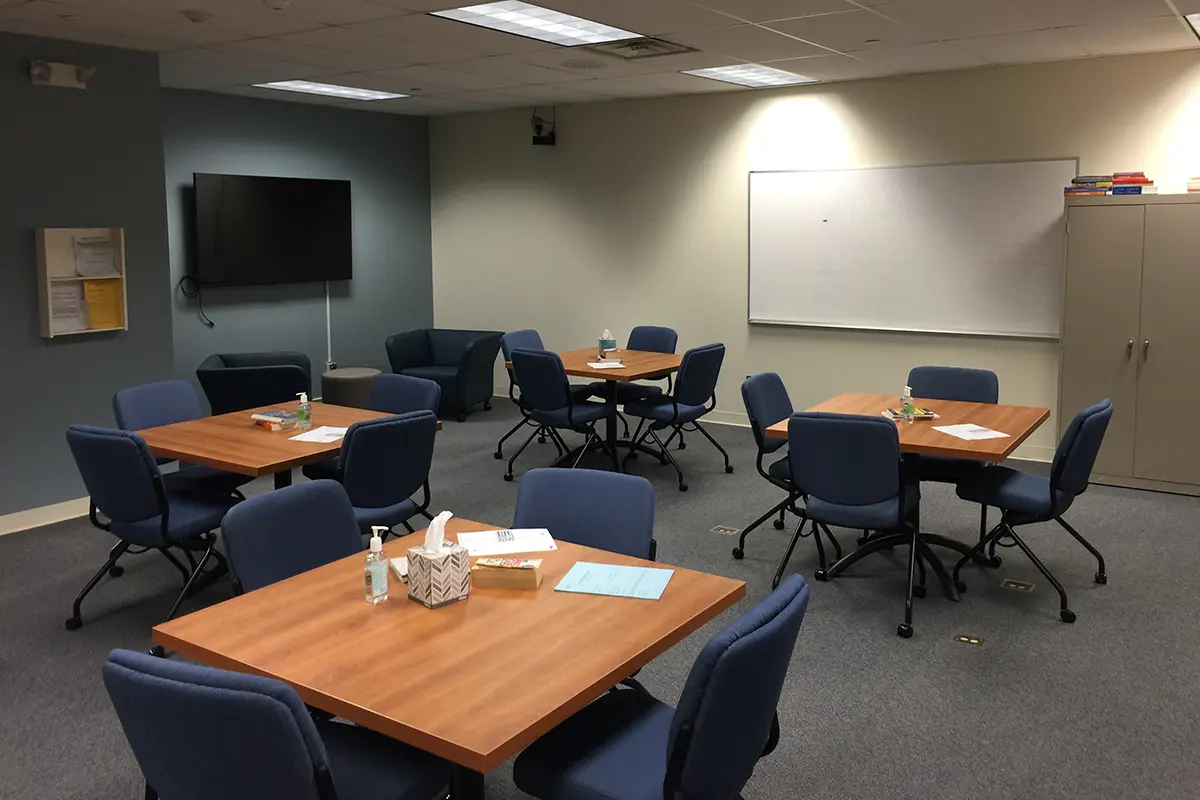
“Our mission remains the same: to empower writers, strengthen partnerships across campus, and ensure that every student leaves Georgian Court with the confidence to express themselves in a world where clear communication is more important than ever,” he added.
“The Writing Center is about giving people the tools to think clearly, communicate powerfully, and pursue their goals. That’s what we’re most proud of, and that’s what we’ll continue to build on in the years ahead,” concluded Dr. Brano.

